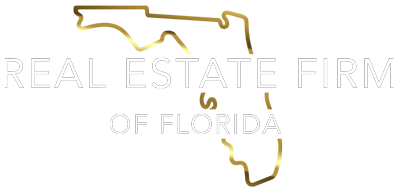The Basics of FHA Loans
This guide explains the following:
- Understanding FHA loans and their benefits
- Eligibility requirements for FHA loans
- The FHA loan application process
- Pros and cons of FHA loans
- FAQ about FHA loans
Here’s a closer look at each.
Understanding FHA Loans and Their Benefits
FHA loans, backed by the Federal Housing Administration, are a popular financing option for homebuyers. They offer several benefits, including:
- Lower Down Payment: FHA loans often require a lower down payment compared to conventional loans. You may be eligible for an FHA loan with as little as 3.5% down, making homeownership more accessible, especially for first-time buyers.
- Flexible Credit Requirements: FHA loans are more forgiving when it comes to credit scores. Borrowers with lower credit scores may still qualify for an FHA loan, giving them an opportunity to become homeowners.
- Competitive Interest Rates: FHA loans typically offer competitive interest rates, which can result in more affordable monthly mortgage payments over the life of the loan.
Eligibility Requirements for FHA Loans
To qualify for an FHA loan, you’ll need to meet certain requirements, including:
- Minimum Credit Score: While FHA loans have more lenient credit requirements, most lenders prefer a credit score of 580 or higher. However, borrowers with scores between 500 and 579 may still be eligible with a higher down payment.
- Stable Employment and Income: Lenders want to see a consistent employment history and sufficient income to ensure you can afford the mortgage payments.
- Debt-to-Income Ratio: Your debt-to-income ratio, which compares your monthly debt payments to your gross monthly income, should generally be below 43%. However, exceptions may be made for borrowers with compensating factors.
The FHA Loan Application Process
Applying for an FHA loan involves several steps, including:
- Pre-Approval: Get pre-approved by a lender who offers FHA loans. This step determines how much you can borrow and helps you understand your budget when searching for a home.
- Find a Home: After you receive pre-approval, start looking for a home that meets your needs and falls within your budget. Remember to prioritize properties that meet FHA guidelines.
- Loan Application: Submit a loan application to your lender, providing all the necessary documentation such as income verification, bank statements, and tax returns.
- FHA Appraisal: The lender will order an FHA appraisal to assess the value of the property and ensure it meets minimum property standards set by the FHA.
- Loan Underwriting: The lender reviews your application and documentation to determine if you meet all the requirements for the loan. They’ll assess your creditworthiness, employment history, and other factors.
- Loan Closing: If your loan is approved, you’ll go through the closing process, where you’ll sign the necessary paperwork and finalize the loan. You’ll typically pay closing costs, including mortgage insurance premiums if required.
Pros and Cons of FHA Loans
Consider the following pros and cons before deciding if an FHA loan is right for you:
Pros:
- Lower down payment requirements
- Flexible credit requirements
- Competitive interest rates
Cons:
- Mortgage insurance premiums
- Property condition requirements
- Loan limits based on location
FAQ About FHA Loans
Check out these commonly asked questions about FHA loans. If you don’t see the answers here, please call our office, and we’ll get you the information you need.
Q: Can I use an FHA loan to buy an investment property?
A: No, FHA loans are designed for primary residences. They cannot be used for purchasing investment properties or second homes.
Q: How long do I have to pay mortgage insurance with an FHA loan?
A: If your down payment is less than 10%, you’ll be required to pay mortgage insurance for the life of the loan. However, if your down payment is 10% or more, you may be eligible to remove the mortgage insurance after 11 years.
Q: Are there any specific property requirements for an FHA loan?
A: Yes, FHA loans have property requirements to ensure the home is safe and habitable. Some common requirements include functioning utilities, adequate heating and cooling systems, and no major structural issues. An FHA appraisal will assess the property’s compliance with these standards.
Q: Can I refinance an existing loan into an FHA loan?
A: Yes, you can refinance an existing loan into an FHA loan through an FHA Streamline Refinance or a Cash-Out Refinance. These options allow you to take advantage of the benefits of an FHA loan, such as lower interest rates or accessing equity in your home.
Q: Can I use gift funds for the down payment on an FHA loan?
A: Yes, FHA loans allow the use of gift funds for the down payment. However, there are specific guidelines and documentation requirements to verify the source of the gift funds.
FHA loans provide a viable financing option for many homebuyers, particularly those with lower credit scores or limited down payment funds. By understanding the basics of FHA loans, the eligibility requirements, and the application process, you can make an informed decision about whether this loan program aligns with your home buying goals. Remember to consult with your real estate agent and a trusted lender to explore all available options and determine the best path forward.
 $379,900
Active
$379,900
Active
8908 High Ridge Court Tampa, Florida
4 Beds 1 Baths 1,236 SqFt 0.090 Acres
 $599,000
Active
$599,000
Active
814 N Habana Avenue Tampa, Florida
4 Beds 3 Baths 1,862 SqFt 0.170 Acres
 $235,000
Active
$235,000
Active
10205 Courtney Palms Boulevard 301 Tampa, Florida
2 Beds 2 Baths 1,045 SqFt
 $274,200
Active
$274,200
Active
3714 Greenery Court 114 Tampa, Florida
2 Beds 2 Baths 1,110 SqFt 0.080 Acres
Are You Buying or Selling a Home in Tampa Bay?
You can use this website to search homes for sale in Tampa Bay and all its communities. Our site is directly connected to the Tampa Bay MLS, and we update our listings every hour. You can even use our site to create your own account and get emails as soon as a new home hits the market, price change alerts and so much more.
While you’re here, check out these listings:
Join our team
Please fill out the below form completely and include your resume & cover letter and we will get back to you quickly!














